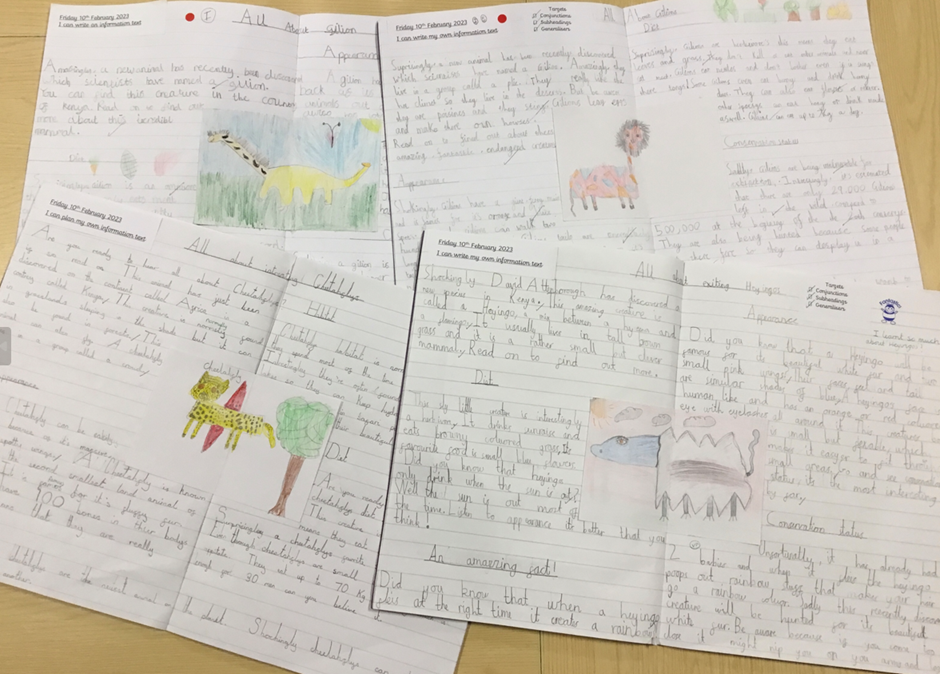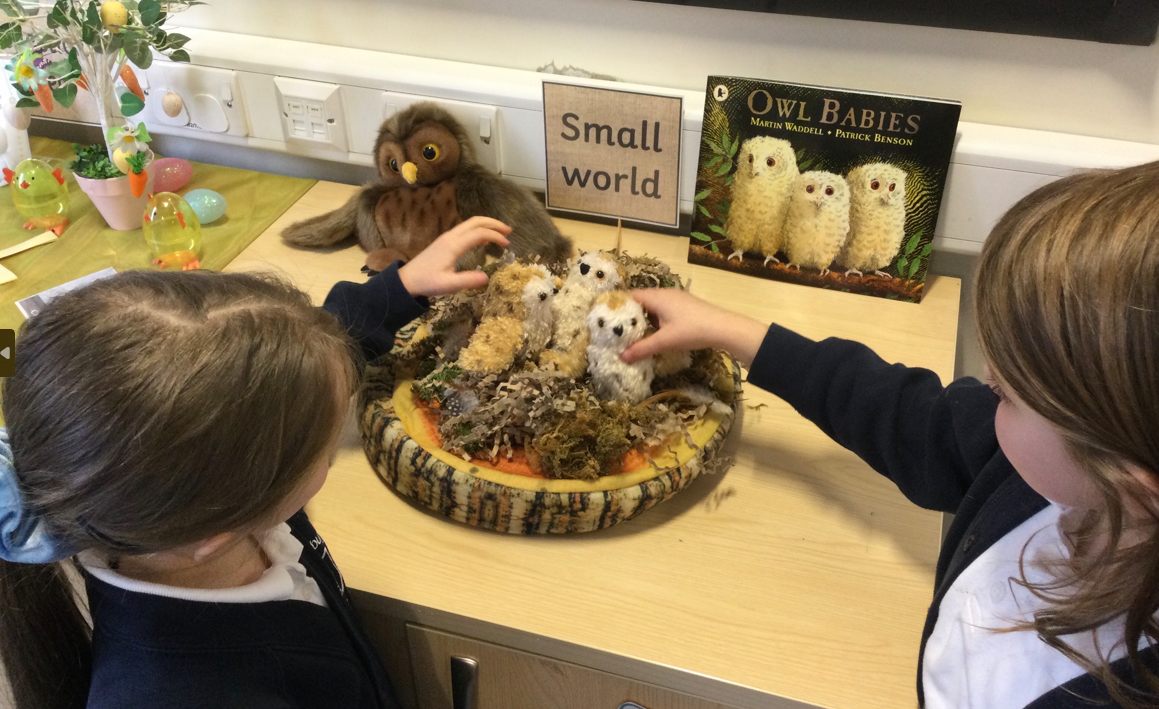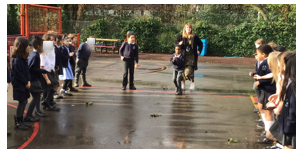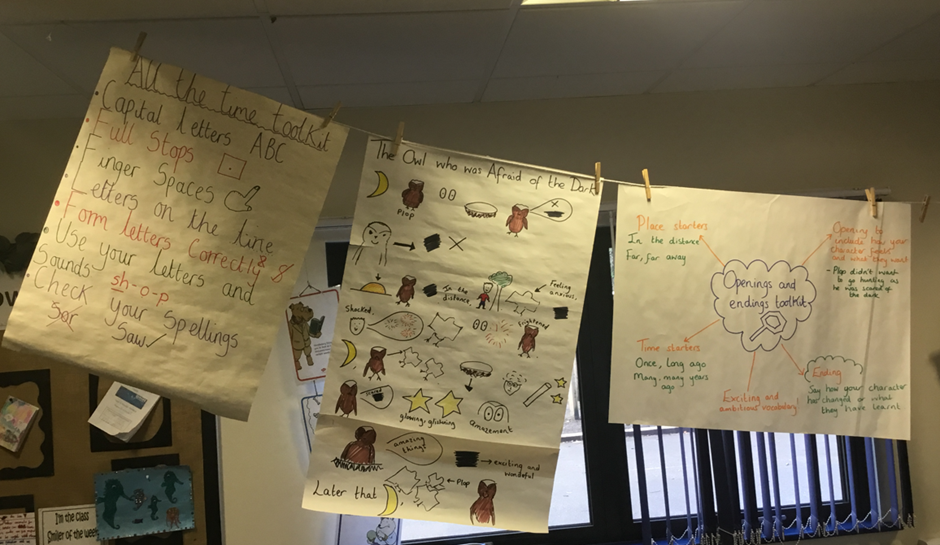Writing

An animal discovered by David Attenborough
Information text by Year 2
The teaching of writing is of paramount importance within a broad and balanced curriculum. Our aim is to ensure that every child within our school, regardless of background and potential difficulty, leaves our school as a competent writer and with an understanding of the conventions of Standard English and when to use it effectively.
This ability to write with confidence for a range of purposes and audiences ensures that children leave West Didsbury CE Primary fully prepared for their secondary education, ready to achieve their aspirations and thrive in their adult life.
The writing curriculum at West Didsbury CE encourages children to immerse themselves in different text types, understand the features and impact of these, and realise the importance of them beyond education.
We focus on providing children with exciting, engaging and purposeful writing opportunities. Some examples of independent writes that endeavour and encourage children to write current issues in the wider world and make them a force for good in society are;
- A discussion about the deforestation of the rain forest
- A discussion on whether plastics should be banned
- A discussion on whether children should be allowed to use the Internet
- Persuading people to support food banks.
We have carefully selected high quality books and model texts to inspire writing and within a unit we immerse the children in the language and the key features of the text. We explicitly teach the children ambitious vocabulary and support them in independent application as we know that broadening childrens’ vocabulary allows them more opportunities to express their selves clearly.
We believe grammar is most meaningfully taught within a piece of writing when the children can see it in action. Please see our Grammar page for more information.
In Key Stage 1, we nurture transcription skills and explicitly teach handwriting and spelling. This results in children gaining confidence and enables them to focus on composition as they continue their journey throughout the school.
At West Didsbury CE we are passionate about developing our children into thoughtful readers and creative writers and it is through the Talk for Writing approach that we believe we can achieve this. Through its multisensory and interactive teaching it enables children of all ages and abilities to learn to write a wide range of story/text types using various methods including:
- listening to and learning texts and stories;
- taking part in drama and role-play;
- drawing and story mapping;
- collecting words and language strategies
- building their working knowledge of grammar
At West Didsbury CE we are very enthusiastic about this approach as writing becomes a joint enjoyable adventure between pupils and teachers alike.
What exactly is it?
Talk for Writing is an innovative approach to teaching writing developed by the literacy specialist and writer Pie Corbett. It uses high quality model texts to introduce the children to different story/text types, which they then learn off by heart and scrutinise with a writer’s critical eye.
They learn the underlying structures and the process of planning using story maps. They also learn about the key strategies for creating interesting characters and settings and how to use a range of sentence types to create different effects including suspense or adventure.
Process
Talk for Writing has three key phases that work together to develop knowledge, confidence and independence in writing:
Imitation and immersion

During this phase children learn a model text with actions and story maps. The key to success for this is that they internalise the text type through repetition and rehearsal. They explore the structure of the narrative and investigate the different characters, settings and events

They also begin to look closely at the language used and the effect this has on the reader. We call this process ‘read as a writer’. The classroom becomes a dynamic, interactive resource filled with word ideas, sentence types and language tools collected by the children to use in their stories later.
Innovation
D uring this phase the teacher and the children begin to change aspects of the model text using their own ideas. They explore the text using different characters, settings or events and new ideas for descriptive language whilst hugging closely to the underlying structure.
uring this phase the teacher and the children begin to change aspects of the model text using their own ideas. They explore the text using different characters, settings or events and new ideas for descriptive language whilst hugging closely to the underlying structure.
It is in this phase that the children work using their toolkits. The toolkits, based on the features and ingredients of the model text, remind children of the different strategies they could use in their stories and helps them to see the progress they are making.
Invention
During the invention week the children plan and write their own story based on the text type they have been learning. They experiment with the ideas and begin to explore their own style of writing using sentence types from the model text.
For more information see the Talk For Writing website: What is Talk for Writing? - Talk for Writing (talk4writing.com)
Our writing lead is Mrs Sheehan who is incredibly passionate about children's writing. She works closely with the phonics and reading leads to ensure that she fosters and maintains pupils interest in writing. If you have any questions about writing at West Didsbury CE Primary then please email her through the office: office@westdidsburyceprimary.co.uk

